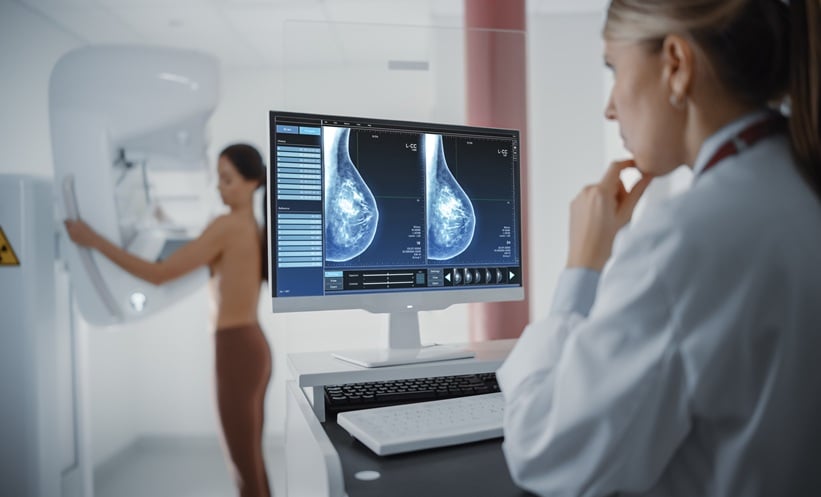DESPITE ADVANCES in screening and treatment that have reduced breast cancer mortality over recent decades, late stage breast cancer continues to pose a significant challenge. Stage III and IV breast cancer account for up to 22% of all cases and are strongly associated with breast cancer-related deaths. This underlines the importance of early identification of women at higher risk to enable timely interventions and improve breast cancer outcomes.
Mammography screening remains the most effective tool for detecting breast cancer at an early stage, helping to reduce the likelihood of advanced disease and related mortality. While later stage diagnoses are more common among women who miss screening, little has been known about the long-term impact of participation in the first mammography screening.
The Role of First Mammography Screening
Data from nearly half a million women in Sweden, followed for up to 25 years, sheds new light on this issue. The study examined how attendance at the first invited mammography screening influenced future screening behaviour, tumour characteristics, and breast cancer mortality. Findings revealed that women who skipped their first screening had a higher risk of dying from breast cancer compared to those who attended.
This increased mortality was primarily explained by lower attendance at subsequent screenings, resulting in more symptom-detected cancers, which are usually diagnosed at later stages. Non-participants were also more likely to present with advanced stage tumours, strongly associated with poorer survival. Importantly, the study found no evidence of a higher overall incidence of breast cancer among non-participants, supporting the conclusion that delayed detection rather than increased risk drives the poorer outcomes.
Addressing barriers to first screening
The findings emphasise that the first mammography screening is a pivotal moment in shaping long-term breast cancer outcomes. Non-attendance may set women on a trajectory of missed opportunities for early detection, leading to more aggressive disease at diagnosis. While factors such as healthy user bias may partly contribute, the evidence suggests that delayed diagnosis is the primary driver of increased mortality.
Encouraging participation in the initial mammography screening invitation could therefore play a crucial role in reducing advanced disease and improving survival rates. Strengthening outreach strategies to overcome barriers at this critical first step may have lasting benefits for women’s health.
Reference
Ma Z et al. First mammography screening participation and breast cancer incidence and mortality in the subsequent 25 years: population based cohort study. BMJ. 2025;390:e085029.








